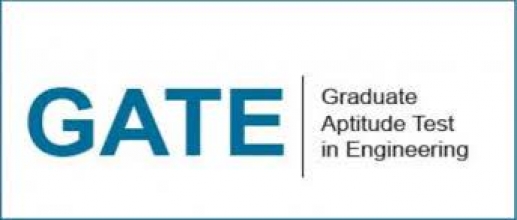
If the candidate is willing to prepare for the GATE 2023 exam, here are some tips to help you prepare. It is helpful if you first understand the syllabus and Exam pattern of this examination. After this, you can begin preparing. You can also use previous years' papers to help you. You should also know how long the exam will take to allocate enough time to study.
The GATE exam is for admission to various masters and doctorate programs. For GATE 2023 registration, Candidates can apply for exam admission by filling out a GATE 2023 online application form. The application form is likely to be released in September 2022.
Exam pattern for GATE 2023
The GATE 2023 Exam Pattern includes a new pattern of questions. Each paper will have one question on General Aptitude and Mathematics. In addition, each section will have one question, which is worth a particular number of marks. It is expected to answer all questions correctly by the candidates.
The GATE 2023 Exam Pattern is a good guide for those preparing for the exam. It will give you an idea about the syllabus and marks distribution. The question paper will consist of MCQs, multiple select questions, and numerical-answer questions.
The GATE 2023 Exam Pattern consists of two papers, a General Aptitude paper worth 15 marks and a technical subject worth 85 marks. The total GATE 2023 exam will contain 100 marks. The GATE exam pattern also includes two sections: Mechanical Engineering and Civil Engineering. The first section will consist of General Aptitude questions, and the second section will consist of questions on Computer Science and Engineering.
All the important details about the exam Pattern will be released on the official website of IIT Kanpur. The registered candidates must know about the test, including the number of questions, the time allotted, and the marking scheme for each section. It will also explain if the exam has negative markings for wrong answers. Therefore, it's important to check the GATE 2023 Exam Pattern before applying for the exam.
Syllabus of GATE 2023
The GATE 2023 syllabus is out, and you can download and study it. The syllabus includes the topics of Naval Architecture & Marine Engineering, Geomatics Engineering, and Environmental Science & Engineering. It also includes Bio-medical Engineering. Studying the syllabus is important so you can plan your strategy. The syllabus is divided into core topics and special topics. The core topics make up 90% of the exam, while the special topics make up the remaining 10%.
GATE 2023 exam questions will be based on the subject chosen by the candidate. There are 27 subject codes in the GATE 2023 syllabus, and each candidate is allowed to appear in up to two papers. The syllabus also includes topics in Mathematics, Physics, and Chemistry.
Refer to previous year's GATE question papers
Previous year papers are important for your GATE 2023 Exam preparation. Aside from solving the question papers, they also help you keep up with your speed and familiarize yourself with the topics. You can also practice the mock tests to improve your skills and knowledge. Typically, GATE tests a total of 29 papers. The syllabus varies depending on the core subjects you studied during your B.Tech.
Previous year papers and good authors' GATE 2023 preparation books can also help you analyze your performance, see your weak spots, and identify where you need more work. It will increase your confidence and make you feel more prepared for the test. While solving previous year's papers for GATE 2023 can help you understand the exam format and how to answer the questions.
Cut off for GATE 2023
Knowing the GATE 2023 cutoff is important to qualify for a good institute. The minimum qualifying marks for a GATE exam vary according to the subject area. The cutoff for each subject is published along with the result. It would help you get these marks to secure a seat in a premium institute. In addition, the candidate must check for the subject specialization-wise cutoff to get an appropriate idea about the scoring percentage.